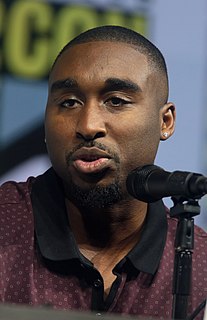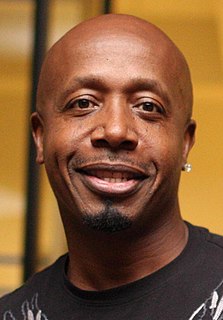A Quote by Iggy Azalea
I always thought that there was something in hip-hop culture that was the misfit of all the musical styles, where they didn't really belong. They're kind of like, 'No, we're a real culture! We're not going anywhere, you can't get rid of us!' I really liked that there was a rebelliousness about it. I connected with that.
Related Quotes
This is more in regards to celebrities. What we've got to understand is that we are the influencers of the hip-hop culture, the black culture. We are the way out, you feel what I'm sayin'? As far as who we look to and where we get stuff from - hip-hop culture is influencing the world, really, but especially the black communities.
Well, we have to realize the truth about the person who is a hip-hop insider. Most of these people are not really insiders. They are people who are chosen to do an interview and they will make a statement and say that they are a part of the hip-hop culture, but from an intellectual standpoint, they are not very sharp, because back in '1990..'91 one would criticize somebody for doing one type of commercial and say that's not real hip-hop and then another rapper turns around and sell them malt liquor and say that's real hip hop.
I am trying to get folks outside the hip-hop culture to understand why, despite the negatives, young people find hope and refuge in hip-hop. I'm hoping that young people immersed in the culture will work harder to capitalize on the possibilities for great social change that hip-hop represents as a national unified cultural youth movement.
If I were to critique myself - step out of KRS objectively and look at him - I would say that KRS has introduced the concept of being hip-hop, not just doing it. The concept of rap as something we do, while hip-hop is something we live. The concept of living a culture. Don't just look at hip-hop as rap music, see it as a culture.
I think that hip-hop should be spelled with a capital "H," and as one word. It's the name of the culture, and it's the name of the identity and consciousness. I think hip-hop is not a product, but a culture. I think rap is a product, but when hip-hop becomes a product, that's slavery, because you're talking about people's souls.
In this time, we incorporate money and media, and it's split up like apartheid, where when you say "hip-hop," you think just rap records. People might have forgot about all the other elements in hip-hop. Now we're back out there again, trying to get people back to the fifth element, the knowledge. To know to respect the whole culture, especially to you radio stations that claim to be hip-hop and you're not, because if you was a hip-hop radio station, why do you just play one aspect of hip-hop and rap, which is gangsta rap?
It's just that when you heard hip-hop, no matter where you were, it was a culture that kind of made you want to try to be part of it. Whether you thought you were an artist, whether you thought you could be a DJ, whether you thought you could breakdance, or whether you thought you could rap. It was the kind of culture that had a lot of open doors.


































